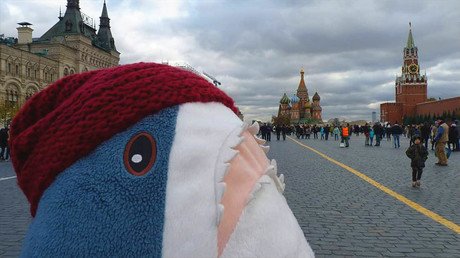Reality сheck: When life gives you lemons… make up bulls*** about Russia?

Coverage of Russia in US media is frequently lazy, misinformed and inaccurate, but sometimes it dives off the deep end into bat s*** crazy absurdity.
This was a real Forbes headline: “Want To Find A Rich Person In Russia? Look For The Lemons.”
Below the line, one Lizzy Saxe wrote “wealthy Russians really like to incorporate lemons into their lifestyle. It communicates to people that they have the means to be able to afford them. They call it the bling of produce.”
Yup, lemons. Which, unlike actual ‘bling,’ literally grow on trees.
You’ll notice the use of the past tense. Because this is what Forbes ran on Sunday before they quietly amended their nonsense in the dead of night “to more accurately reflect social status in Russia.” Nevertheless, there was no apology, nor did the magazine outline its inaccuracies, so we can assume Saxe is none-the-wiser.
When Russians want to show off their wealth, they buy a luxury car, an expensive fur coat or, perhaps, a yacht. One thing they don’t do is walk around with bags of lemons.
Because, you see, lemons are really cheap in Russia. In Sochi, they retail at about 65 rubles a kilo (which is slightly less than a dollar in US money). Further north, in chilly Moscow, they apparently cost about 10% more.
In fact, the only thing remotely related to opulence is that the Russian word for the fruit, лимон (Limon), sounds vaguely similar to миллион (million).
The Forbes piece was based on a conversation with a dude called Harold Edwards, whose company grows fruits in California. Now, maybe Harold was playing a practical joke on Lizzy.
Because he told her lemons don’t grow in Russia, as “it’s too cold to produce them.” Even though southern Russia has a climate similar to the South of France. And vast swathes of the country have very hot summers, akin to what you might encounter in the Balkans.
Also on rt.com Bigotry & xenophobia about ‘the Russians’ is the only kind PC culture allowsHowever, he was coy when Lizzy asked whether “this aspirational citrus boom had anything to do with a fetishized idea of Westernness.”
Now, let’s be clear, lemons have been cultivated in Russia for centuries and can be found in gardens in places like Krasnodar. Meanwhile, folks in Siberia and the Far East even grow them on their balconies.
And it’s nothing to do with a “fetishized idea of Westernness” either: it’s mainly because Russians like lemon tea. And lemon cakes. Indeed, Leo Tolstoy’s favourite dessert was Anke Pie, which is made from “butter, sugar, eggs and the juice of three freshly squeezed lemons.”
Today, a Russian can pick up around 110 kilos of lemons for the price of an annual subscription to Forbes magazine. With standards like these, the fruit is, undoubtedly, better value.
Bryan MacDonald
@27khv
Like this story? Share it with a friend!














